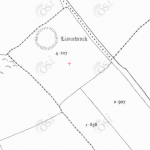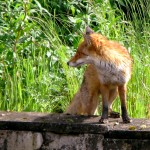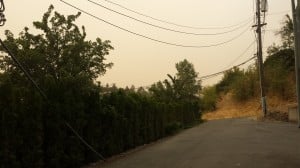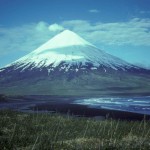There are a million ways to connect to Place, and most of them involve going ‘outside.’ Some of the reasons don’t necessarily involve the Land, but involve people, groups, events, our own homes, etc. Of course, this makes it sound like those things are separate from the Land, which they are not, as everything is interdependent.
There are also many reasons why going outside matters. We can talk about the health reasons for walking and not driving, for the environmental education the outdoors imparts to us. We can talk about connecting to spirits – either the Land spirits or just our own. We can talk about how going outside bolsters community connection and safety. All of these things are important and good.
I read this beautifully written article by Rebecca Solnit today. So much of our very language is geared toward consuming and efficiency. How do we learn to listen if we do not practice it? How do we learn to relate if we only think of relating to humans? How can we create space for the intangible?
The language of commerce has been engineered to describe the overt purpose of a thing, but cannot encompass fringe benefits or peripheral pleasures. It weighs the obvious against what in its terms are incomprehensible. When I drive from here to there, speed, privacy, control, and safety are easy to claim. When I walk, what happens is more vague, more ambiguous—and in many circumstances much richer. I am out in the world. It’s exercise, though not so quantifiably as on a treadmill in a gym with a digital readout. It’s myriad little epiphanies and encounters that knit me more tightly into my place and maybe enhance the place overall. The carbon emissions are essentially nil. Many more benefits are more subjective, more ethereal—and more wordy. You can’t describe them in a few familiar phrases; and if you’re not practiced at describing them, you may not be able to articulate them at all. It is difficult to value what cannot be named. Since someone makes money every time you buy a car or fill it up, there’s a whole commercial language built around getting us to drive; there’s little or no language promoting the free act of walking.
I get so distracted during my days. What was for dinner again? Do I have all the ingredients? Is it time to pick up the boy from preschool? All the little things to care for and think about crowd out the spaciousness of birds and breezes. But getting outside – walking the mile into town, walking the three blocks to and from preschool – these little outings help me connect in non-quantifiable ways to my surroundings. The buds of the blooms are just ever so slightly more open today. The air smells more like rain this afternoon than it did in the morning (time to put raincoats on everyone).
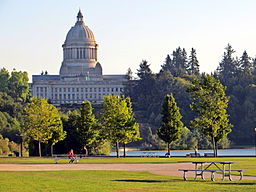
Those observances are beneficial to me. I relate to my new chosen Land more and more every day. I encourage the kids to develop their senses. But, as Solnit goes on to point out, getting outside and the resulting “slowness is an act of resistance, not because slowness is a good in itself but because of all that it makes room for, the things that don’t get measured and can’t be bought.”
Lifestyles, by choice or necessity, that engage us with our communities and our Lands are acts of resistance. Many gardeners and urban homesteaders talk about how they are practicing food security. Those who bike or forgo commuting all together sometimes speak about reducing their dependency on oil. In a world where we are encouraged to own cars as soon as we know how to drive, that suggests commuting an hour or more to work is a good idea, that packaged foods are just fine for our bodies, these seemingly small acts of resistance still feel radical. I want what I eat to connect me to other living things, not chemicals manufactured in a plant designed with profits in mind. I want to a live a life that affords me more time with the people that I love – and walking enables that.
Whatever acts bring you in closer connection to your gods, your loved ones, your communities, and your lands, these are potentially radical acts. Going outside matters. And I think it’s going to matter more and more in our world. I think that these acts of resistance are part of the revolution our societies are headed toward. If walking and being together in our lands isn’t, I’m not sure it’s a revolution I want to be part of!

